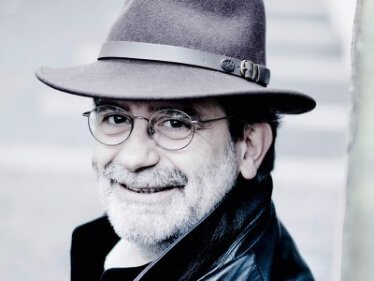La concordia de' pianeti - Schedule, Program & Tickets
La concordia de' pianeti
Serenata in one act (1723)
Music by Antonio Caldara
Libretto by Pietro Pariati
Concert performance in Italian
Pack fights, Pack gets along: the gods are once again at odds. And why? Because they may be wrong now and then, but still vocalize their point of view; in addition, celebrating various vanities is simply part of the life of the gods. After all, you're not just anyone. But what is it now exactly? The seven deities Venus, Diana, Jupiter, Apollo, Mars, Mercury and Saturn consider whether they should celebrate a person who has not yet been named in heaven. After it becomes clear that it is a mortal question, the quarrel begins: mortals should be satisfied with honors of mortals and not strive for heavenly honors. After the first section of the opera, a majority emerges: there are four (Venus, Diana, Apollon and Mars) to three (Jupiter, Mercury, Saturn) against a heavenly honor for mortals. But Jupiter speaks a word of power, and finally Mercury reveals the identity of the hitherto unknown: Empress Elisa. Her advantages are so impressive that Elisha's former opponents also become her supporters. The harmony of the planetary deities is restored. In a personal homage, Venus - formerly Elisha's greatest opponent - puts this concordia, Concordia, at the feet of the empress personally. It is no coincidence that the Serenata in One Act replicates Empress Elisabeth Christine, wife of Emperor Charles VI, it was composed for her. On the journey from Bohemia to Vienna, Elisabeth Christine's name day was celebrated at Znojmo Castle. The vice-music director of the court orchestra, Antonio Caldara, wrote his “componimento teatrale” La concordia de ’pianeti on a libretto by the court poet Pietro Paria. In addition to strings, continuo, oboes and bassoon, the orchestra has four trumpets and two timpani, possibly due to the open air conditions on November 17, 1723. The cast of singers was excellent, especially the castrato Giovanni Carestini shone in the role of Apollo. In 2014 the conductor, organist and harpsichordist Andrea Marcon was able to bring this forgotten work to its first modern performance - he is also the musical director at the Theater an der Wien.
Subject to changes.
Music by Antonio Caldara
Libretto by Pietro Pariati
Concert performance in Italian
Pack fights, Pack gets along: the gods are once again at odds. And why? Because they may be wrong now and then, but still vocalize their point of view; in addition, celebrating various vanities is simply part of the life of the gods. After all, you're not just anyone. But what is it now exactly? The seven deities Venus, Diana, Jupiter, Apollo, Mars, Mercury and Saturn consider whether they should celebrate a person who has not yet been named in heaven. After it becomes clear that it is a mortal question, the quarrel begins: mortals should be satisfied with honors of mortals and not strive for heavenly honors. After the first section of the opera, a majority emerges: there are four (Venus, Diana, Apollon and Mars) to three (Jupiter, Mercury, Saturn) against a heavenly honor for mortals. But Jupiter speaks a word of power, and finally Mercury reveals the identity of the hitherto unknown: Empress Elisa. Her advantages are so impressive that Elisha's former opponents also become her supporters. The harmony of the planetary deities is restored. In a personal homage, Venus - formerly Elisha's greatest opponent - puts this concordia, Concordia, at the feet of the empress personally. It is no coincidence that the Serenata in One Act replicates Empress Elisabeth Christine, wife of Emperor Charles VI, it was composed for her. On the journey from Bohemia to Vienna, Elisabeth Christine's name day was celebrated at Znojmo Castle. The vice-music director of the court orchestra, Antonio Caldara, wrote his “componimento teatrale” La concordia de ’pianeti on a libretto by the court poet Pietro Paria. In addition to strings, continuo, oboes and bassoon, the orchestra has four trumpets and two timpani, possibly due to the open air conditions on November 17, 1723. The cast of singers was excellent, especially the castrato Giovanni Carestini shone in the role of Apollo. In 2014 the conductor, organist and harpsichordist Andrea Marcon was able to bring this forgotten work to its first modern performance - he is also the musical director at the Theater an der Wien.
Subject to changes.
There are no products matching the selection.






